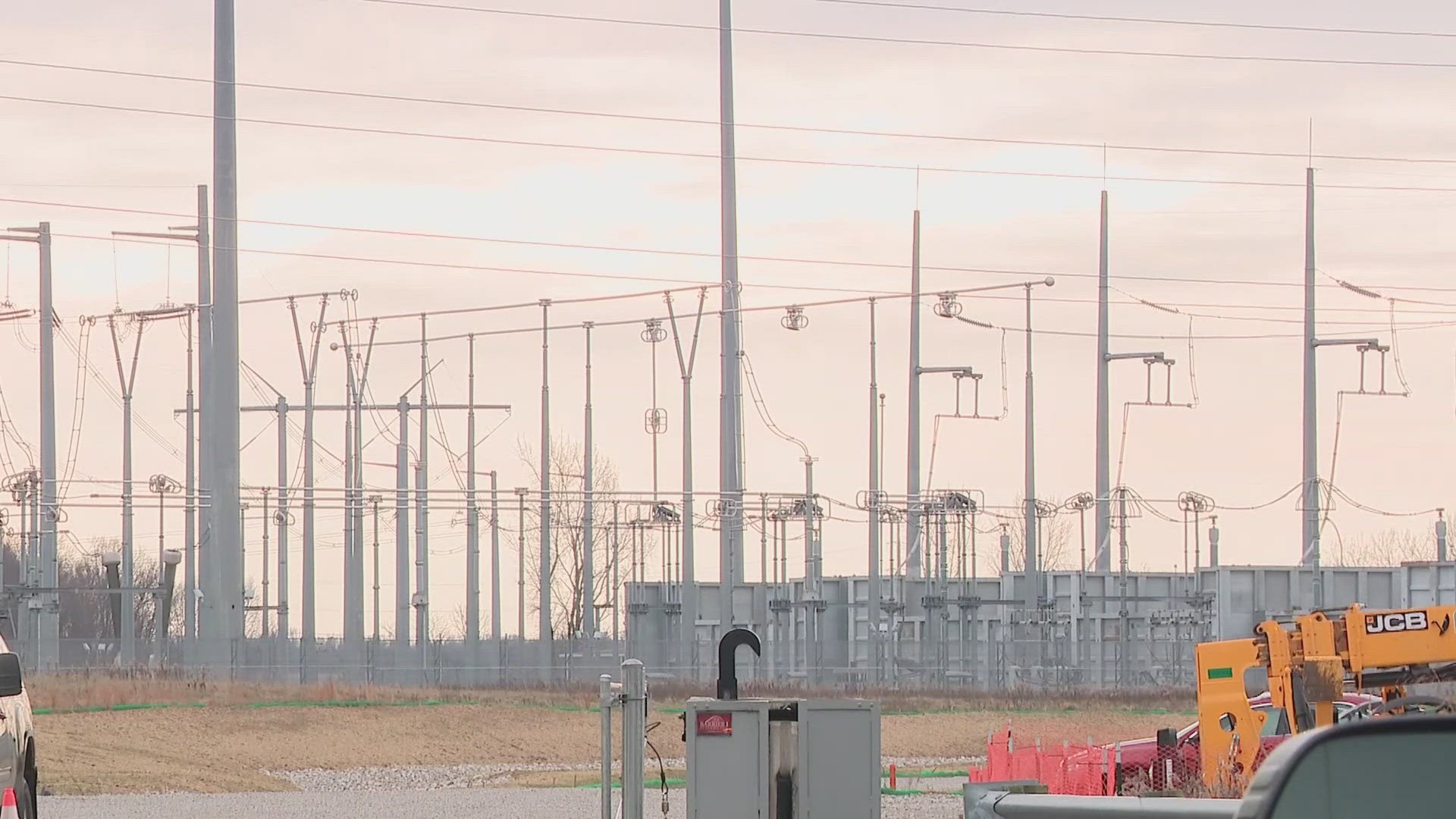DELAWARE COUNTY, Ohio — Amazon's plans to construct a $2 billion data center in Sunbury have ignited a heated debate over energy consumption and rural development.
The tech giant's project is set to transform an empty field on Vans Valley Road in the Sunbury Industrial Park. The project is expected to be finished in two years.
This data center project, and others, has become the focal point of a larger discussion about the impact of data centers on local communities and energy infrastructure.
Amy Hale, whose property borders the proposed development site, expressed her disappointment about the project.
"We were bummed when we first heard the news honestly. We like the peace and quiet out here," Hale said.
The data center boom isn't limited to Sunbury. Other tech behemoths like Google, Meta, Microsoft and Walmart are also expanding their data center presence in central Ohio.
At the heart of the controversy is American Electric Power's proposal to hold data centers accountable for their substantial energy usage. AEP's plan would require data centers to pay for 85% of their projected energy consumption over the next 12 years. Walmart and the Ohio Consumers' Council have approved the plan.
Another settlement proposed by other data centers was not accepted by the OCC.
"(The) settlement counters the partial settlement signed by a coalition of data centers led by the behemoth, Amazon. The data center's pro-industry, anti-consumer proposal would lower the bill for big data center players (like Amazon, Google, Microsoft, and Facebook), with other consumers picking up the tab. Among other things, that one-sided settlement shortens contractual commitments required of the data centers, reduces exit fees, and reduces demand charges that data centers would pay."
Tech companies are pushing back against AEP's proposal. They want AEP to prove they are adding constraints to the grid before passing along costs, and they believe data centers should not be singled out and instead include other major energy users to be priced like them.
AEP's Vice President of Transmission and Planning, Kamran Ali, defended the company's position, stating, "Central Ohio is where we are seeing significant growth that is driving significant transmission constraints, which, if not addressed, will impact the stability and reliability of the entire grid."
AEP told 10TV that in 2018, AEP's central Ohio peak demand was approximately 4,000 megawatts. To date, it's approved 5,000 megawatts that will come online in 2028. That is more than all the customers in central Ohio. AEP said it has requested for 30,000 megawatts from all data center projects in the region.
As construction plans move forward with Amazon's data center in Delaware County, residents like Hale are bracing for significant changes to their community. The once-quiet corner of Delaware County is poised for transformation, with power lines already foreshadowing the impending development.
"I appreciate you getting our side of the story. It's the first time that people who don't live out in the country aren't as affected as much, so it's nice you came out to the farmland to get our view of it," said Hale.
The Public Utilities Commission is not expected to rule on this energy case until next year.

